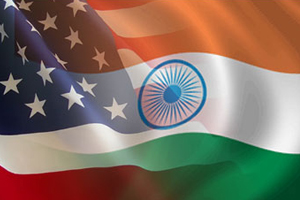India-US Economic Ties Not Realised: US Think Tank

Washington: The full potential of India-US economic relationship is far from being realised, chiefly due to the actions and inactions of the two governments, according to a US think tank.
"Progress will be faster and broader if the focus on government-to-government negotiations is replaced with an emphasis on cooperation at the level of individual companies and states," suggests the report by the Asian Studies Centre of The Heritage Foundation.
Much of the hope for progress on India-US economic issues has been put on the prospects and scope of a bilateral investment treaty (BIT), it says in the first part of the report on "Unleashing the Market in the India-US Economic Relationship".
"A BIT may be useful," the report said. "But only a high-quality BIT-which includes sensitive topics, such as mining and intellectual property rights-can achieve the necessary progress on these and other critical bilateral economic issues."
Current government-to-government talks are nowhere close to realising such a BIT and the historical record indicates that a high-quality BIT is unlikely in the near future, the Heritage report said.
"Even if a sound BIT is eventually achieved, progress should not wait. There is much to be gained for India and the US in the interim," it said.
In investment, individual US states should be more active in marketing to Indian companies, the report said.
It suggested that "it would be helpful if the Indian government were to remove various restrictions on multinational corporations".
"Even if that does not occur, Indian states can greatly improve their local investment climates," it said.
As mining in particular is largely a state matter in India, American companies can assist the process by demonstrating their record in environmental protection and social remediation of mined areas, it said.
In labour, American companies and universities should prod the federal government to roll back recent increases in visa fees and effective reduction in visa quotas, the report suggested.
Indian firms should enhance credibility by doing a better job of self-policing, and New Delhi should look at its own restrictions on foreign labour.
Noting that in intellectual property, international negotiations have led to progress and enforcement is the most pressing issue, it said: "For that, Indian states are well positioned."
Also Read:
CEOs to Watch Out For In 2013
Govt Not Worried About Downgrade; Will Contain Deficit: Finmin



.jpg)